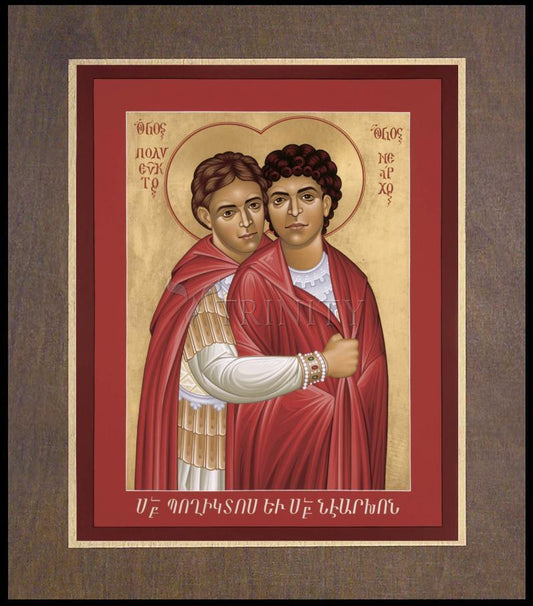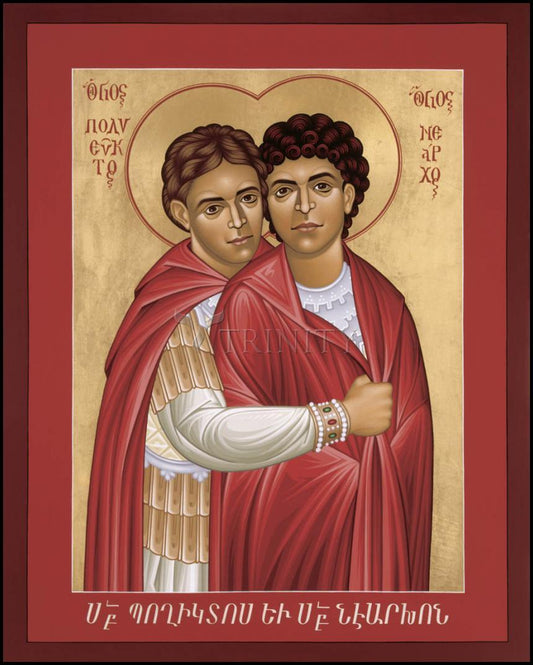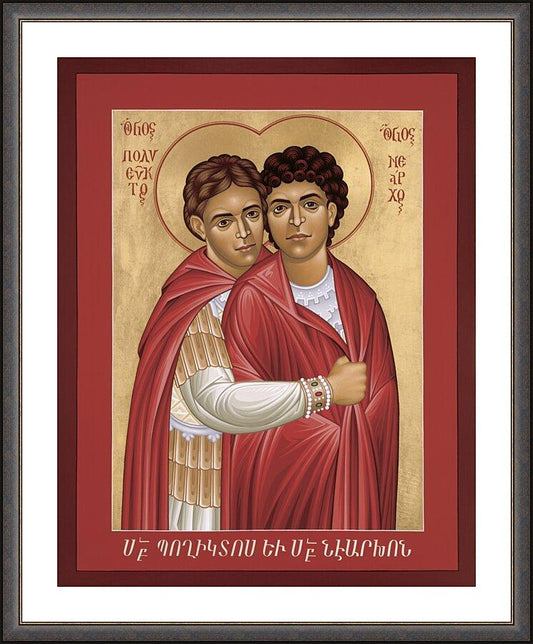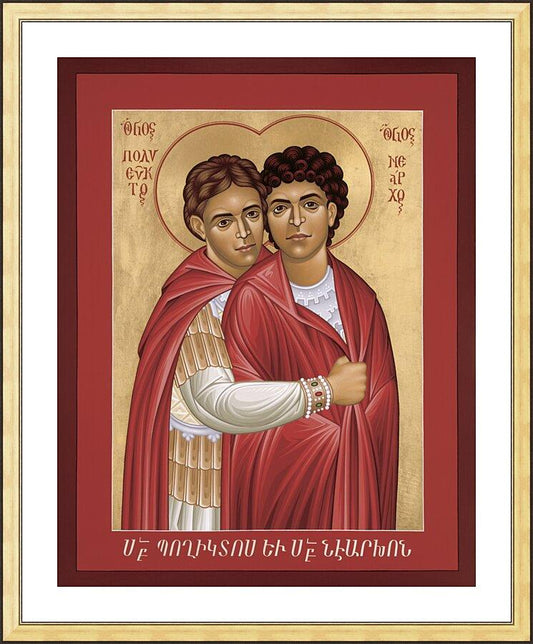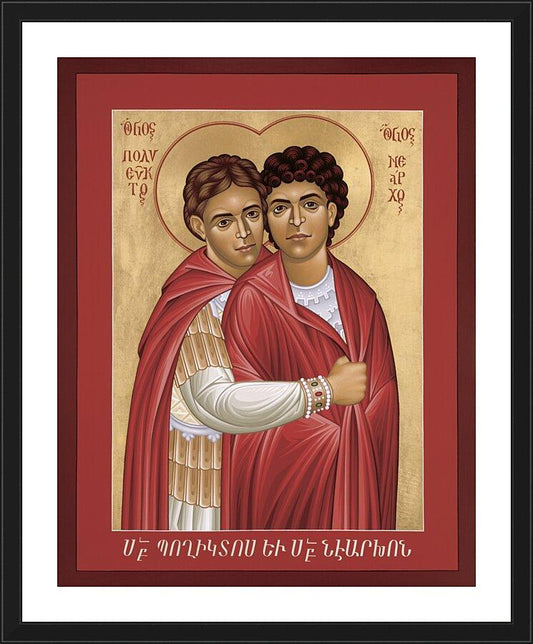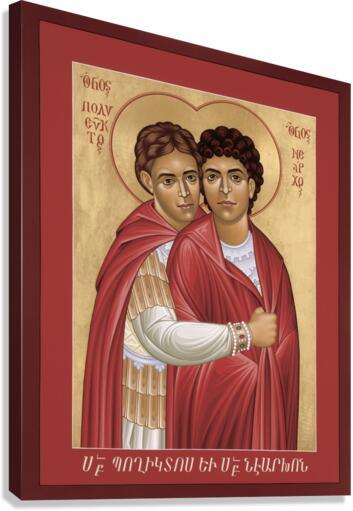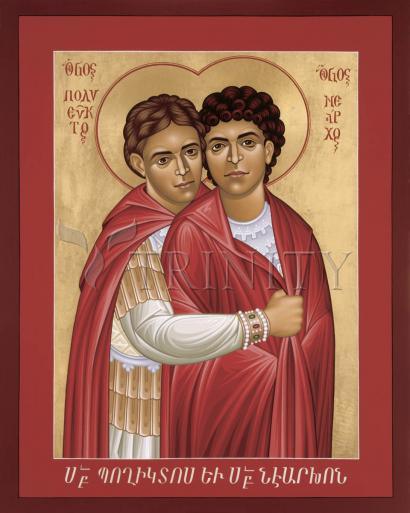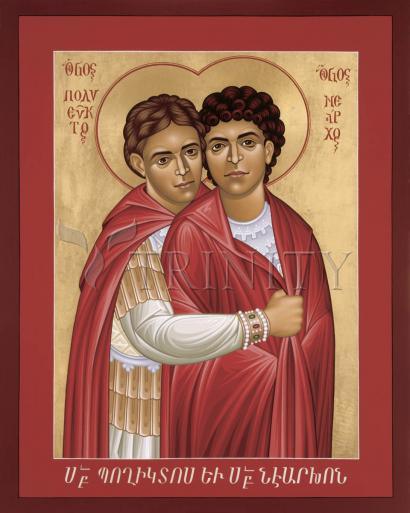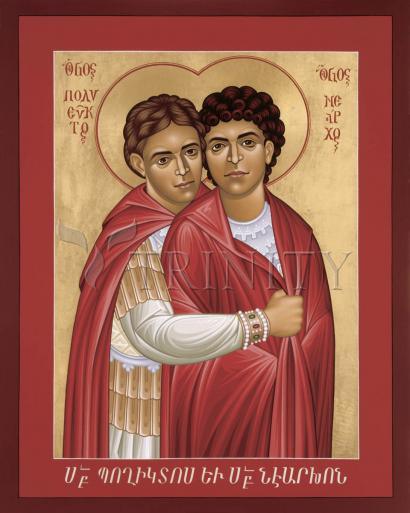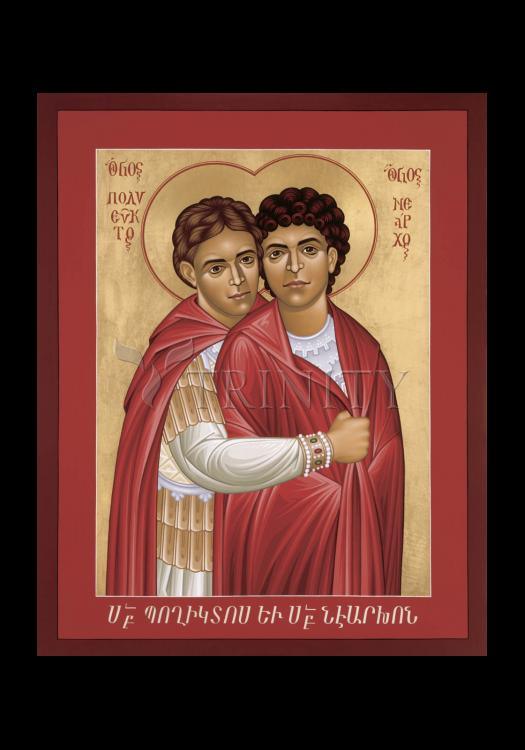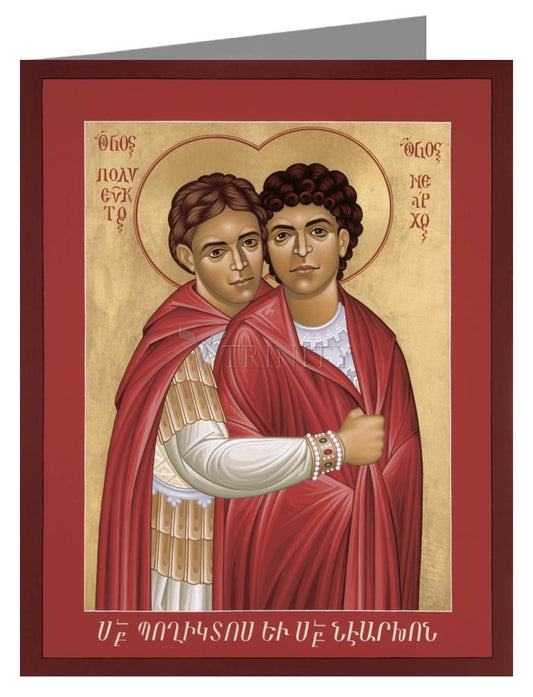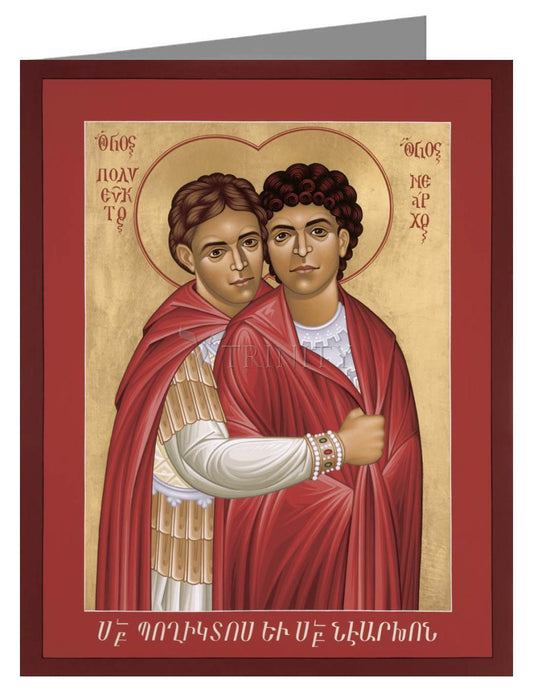Polyeuct was an officer in the Roman legion and a convert. In his zeal as a new convert, he tore up the Valerian's imperial edict of persecution of the Christians, then smashed idols being carried in pagan procession. He was tortured and martyred.
His story was well known to the ancients who built several churches with his name, including a huge one in Constantinople in which it was customary to swear legal oaths. His Acts were widely read, and formed the basis for theatrical tragedy.
St. Polyeuct was the first martyr in the Armenian city of Meletina. He was a soldier under the emperor Decius (249-251) and he later suffered for Christ under the emperor Valerian (253-259). The saint was friend also of Nearchus, a fellow-soldier and firm Christian, but Polyeuct himself, while yet leading a virtuous life, remained a pagan.
When the persecution against Christians started up, Nearchus said to Polyeuct: "Friend, we shalt soon be separated from thee, for they wilt take me to torture, and thou alas, wilt renounce friendship with me". Polyeuct answered him, that in a dream he had seen Christ, Who took from him his garb and clothed him in another and bright attire. "From that moment," -- said he -- "I am prepared to serve the Lord Jesus Christ."
Having become ardent in spirit, St. Polyeuct went out onto the city square, tore up the imperial edict hanging there about the duty to worship idols, and then he smashed idols from out of the hands of pagan priests carrying them.
His father-in-law, the governor Felox, to whom had been entrusted the carrying out of the imperial edict, was horrified at the deed of St. Polyeuct and declared, that for this he had to die. "Go, make farewell with thine wife and children," said Felox. The wife came and with tears began to beseech her husband to renounce Christ, and his father-in-law Felox also wept. But St. Polyeuct remained steadfast in his resolve to suffer for Christ. With joy he bent his head beneath the sword of the executioner and was baptized in his own blood (+259).
Soon, when the Church of Christ in the time of Equal-to-the-Apostles Constantine had triumphed throughout all the Roman Empire, at Meletina there was erected a church in the name of the holy Martyr Polyeuct. Many a miracle was worked through the prayerful intercession of St. Polyeuct. In this very church prayed fervently for the granting of a son the parents of the holy Monk Euthymios the Great (commemorated 20 January).
The birth of this great luminary of Orthodoxy in the year 376 thus occurred through the help of the holy Martyr Polyeuct. His memory was also venerated by St. Akakios, Bishop of Meletina, a participant of the Third Ecumenical Council and a great proponent of the Ecumenical Truth. As in the East, so also in the West, the holy Martyr Polyeuktosis venerated as a patron saint of vows and treaty agreements.
Died: Beheaded in 259 at Melitene, Armenia



